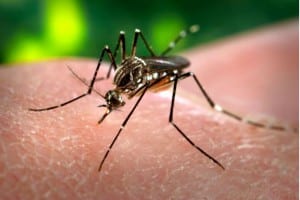To learn about the characteristics of the virus, read the previous article, The Zika Virus Infection.

- A pregnant woman to their fetus if pregnant during infection;
- A pregnant woman to their fetus during conception within two months following potential exposure in a zone affected by the Zika virus (mother-baby transmission is possible, even if conceived after exposure);
- The sperm of a male infected for a prolonged period (sexually transmitted even within six months following potential exposure in a zone affected by Zika);
- A blood transfusion;
- Also, in rare cases: saliva, sweat, urine or breast milk. Cell, blood and organ donations from infected donors can also transmit the virus.
Zika generally remains in the blood of an infected person for about one week. Currently, there is no proof that the virus:
- Will infect the fetus conceived after the virus was eliminated from the infected woman’s blood;
- Poses a risk for congenital anomalies during future pregnancies.
How can you prevent the virus and protect yourself during pregnancy?
Knowledge about the Zika epidemic allows us to protect ourselves better. Also, the World Health Organisation monitors cases around the world and publishes information so that travellers can get the latest news before deciding about travel to certain countries.
Vaccines or medications to treat Zika aren’t currently available. Only the symptoms are treated.
Researchers are working to develop a vaccine that will provoke an immune system response in humans to counter the current epidemic.
To consult official recommendations, please read the following article, Official Recommendations for the Zika Virus.


